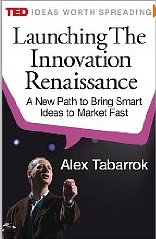Merry Christmas. For those of you who are actually surfing the net today, you might enjoy Art Carden’s Forbes piece on how economists ruined Christmas.
Archive for the 'Economics' Category
I’ll probably blog very little over the next ten days or so, in recognition of the fact that most of you won’t be reading. (On the other hand, if, say, the New York Times publishes something sufficiently egregious, I might not be able to restrain myself. Meanwhile, for your holiday pleasure, here’s the Christmas column I published in Slate in 2004:
 Here’s what I like about Ebenezer Scrooge: His meager lodgings were dark because darkness is cheap, and barely heated because coal is not free. His dinner was gruel, which he prepared himself. Scrooge paid no man to wait on him.
Here’s what I like about Ebenezer Scrooge: His meager lodgings were dark because darkness is cheap, and barely heated because coal is not free. His dinner was gruel, which he prepared himself. Scrooge paid no man to wait on him.
Scrooge has been called ungenerous. I say that’s a bum rap. What could be more generous than keeping your lamps unlit and your plate unfilled, leaving more fuel for others to burn and more food for others to eat? Who is a more benevolent neighbor than the man who employs no servants, freeing them to wait on someone else?
Oh, it might be slightly more complicated than that. Maybe when Scrooge demands less coal for his fire, less coal ends up being mined. But that’s fine, too. Instead of digging coal for Scrooge, some would-be miner is now free to perform some other service for himself or someone else.
Dickens tells us that the Lord Mayor, in the stronghold of the mighty Mansion House, gave orders to his 50 cooks and butlers to keep Christmas as a Lord Mayor’s household should—presumably for a houseful of guests who lavishly praised his generosity. The bricks, mortar, and labor that built the Mansion House might otherwise have built housing for hundreds; Scrooge, by living in three sparse rooms, deprived no man of a home. By employing no cooks or butlers, he ensured that cooks and butlers were available to some other household where guests reveled in ignorance of their debt to Ebenezer Scrooge.
 In late 17th century England, there were no newspapers outside of London, and scarcely a printer outside of London, Cambridge and Oxford. The difficulty and expense of conveying large packets from place to place was so great that an extensive work took longer to reach Devonshire or Lancashire than it took, in Victorian times, to reach Kentucky. As a result, books and printed matter generally were largely unavailable outside of London — and London, for most rural Englishmen, might as well have been the moon.
In late 17th century England, there were no newspapers outside of London, and scarcely a printer outside of London, Cambridge and Oxford. The difficulty and expense of conveying large packets from place to place was so great that an extensive work took longer to reach Devonshire or Lancashire than it took, in Victorian times, to reach Kentucky. As a result, books and printed matter generally were largely unavailable outside of London — and London, for most rural Englishmen, might as well have been the moon.
I learned this from Macaulay’s History of England, which I just pulled up on my Kindle, which of course gives me instant — and searchable! — access to pretty much everything that’s ever been published. But the Kindle, and its brother e-readers, are more revolutionary than that. Not only do they give us easy access to existing literature; they call forth entirely new literary genres, such as the Kindle e-book, which brings to market extended essays that are too long to be magazine articles but too short to be traditional books — and are priced to sell.
All of which brings me to Alex Tabarrok’s Launching the Innovation Renaissance: A New Path to Bring Smart Ideas to Market Fast, which is both a product and a celebration of the innovation revolution, along with a recipe, or rather a set of recipes, for nurturing that revolution.
This is a great book. It’s fast-paced, fun to read, informative as hell, and it gets everything right. At first I wished I’d written it— until I realized I could never have written it half so well.
Yesterday I had the pleasure of attending a very good talk by Yale’s Gary Gorton on the origins of the financial crisis.
Gorton’s story is that this was a bank run, not substantially different from the bank runs that have always plagued capitalist economies. In this case, the run took place in the repo market, which is an unregulated (and largely unmonitored) industry roughly equal in size to the standard banking industry. The repo market serves large institutions (e.g. Fidelity Investments or state governments) with a lot of cash on hand that they want to stash in an interest-bearing account for a day or two. So Fidelity deposits, say, a half-billion dollars at, say, Bear Stearns, just as you might deposit five hundred dollars at your local bank. One difference, though, is that your account at your local bank is insured, whereas Fidelity’s account at Bear Stearns is not — so Fidelity, unlike you, demands collateral for its deposit. Bear Stearns complies by handing over a half-billion dollars worth of bonds, of which Fidelity takes physical possession. The next morning, Fidelity withdraws its money and returns the bonds.
The problem comes in when rumors begin to spread that some bonds might be riskier than they appear, and Fidelity starts to worry that maybe Bear Stearns is picking particularly risky bonds to hand over. Therefore Fidelity demands more than a half-billion in bonds to guarantee its half-billion dollar deposit. If there’s, say, a 10% discrepancy between the deposit and the collateral, we say that Bear Stearns has taken a half-billion dollar haircut.
Because Bear Stearns has a fixed quantity of bonds on hand, and because all of its depositors are demanding haircuts, Bear Stearns can now accept fewer deposits than before. This means that Bear Stearns has less cash on hand. This makes depositors even more worried about the security of their deposits, which means they demand larger haircuts. The effects snowball until Bear Stearns collapses. Like so:

Travel and other projects have kept me absent for a couple of weeks, but I’m hoping to be back on a regular blogging schedule very soon now. Meanwhile, here is the video of the Gosnell Lecture that I recently gave at the Rochester Institute of Technology, titled “More Sex is Safer Sex and Other Surprises”.
One of the surprises turned out to be that the audiovisual equipment didn’t work, so I didn’t get to show my prepared slides. But I think things went pretty well anyway.
Slightly higher quality video is here.
 Happy birthday to our 7 billionth fellow earthling, who, according to most estimates, is due to be born today.
Happy birthday to our 7 billionth fellow earthling, who, according to most estimates, is due to be born today.
Welcome to the earth. Congratulations on being born in the 21st century, where the odds are excellent that you’ll live a richer, more prosperous and more fulfilling life than almost any of the 100 billion or so who preceded you — and paved the way for your prosperity with their investments and their inventions. Would that there had been more of them.
As you go through life, you will almost assuredly contribute to the world’s stock of ideas, diversity and love in ways your parents never contemplated — which is why the rest of us are a little sad that you might be their last child.
There’s certainly such a thing as a population that’s too large. Nobody disputes that. The interesting question is: Given the incentives faced by parents, it the population size we actually get too large or too small? And there are good reasons to think it’s too small.
In fact, population growth is a lot like pollution in reverse. Polluters don’t care about the damage they impose on strangers, so they pollute too much. Parents and potential parents don’t care about they joy and prosperity their chidren bring to strangers, so they reproduce too little.
Here is my piece on the death tax in this morning’s Wall Street Journal (subscription probably required); viewers of this video will find the arguments eerily familiar.
Here’s the one passage the WSJ didn’t have room for; one day our children will look back in wonder on an age when the length of an argument was constrained by anything so archaic it could be measured in square inches:
I know you’ve heard it said that spending is good for the economy. That might be true during a recession, if you subscribe to a broadly Keynesian view of the world. But the death tax encourages overspending year in and year out, which is not a good thing no matter what your point of view.
Herewith my remarks about the estate tax (with particular reference to its effects on the very rich, and why we should care) to Congressional staffers, presented a couple of days ago under the auspices of the American Family Business Institute. Here is higher quality video. Here is the even higher quality YouTube version. Here is video of the entire event. I particularly recommend the first talk, by Stephen Entin.
Note that all of my remarks apply equally well to all forms of capital taxation. Entin did a better job of focusing on the particular shortcomings of the estate tax.
The IS-LM model is the simplest version of the “old Keynesian” approach to macroeconomics. You don’t hear much about IS-LM in the research literature these days, but it’s been coming up a lot on the blogs. Tyler Cowen tells us what he doesn’t like about the model; Brad DeLong and Paul Krugman rise to its defense; Stephen Williamson takes up the gauntlet, and Scott Sumner weighs in.
None of them, in my opinion, has touched the main issue, which is that IS-LM provides absolutely no framework for policy analysis because it makes no assumptions, and draws no conclusions, about what people are trying to accomplish. If you don’t know what people are trying to do, you can’t possibly know how best to help them.
Suppose, for example, that, as Paul Krugman believes, the current state of the economy is being driven by a “liquidity trap”, which means that people are hoarding money instead of spending it, and therefore consuming less, which is why employment is so low. Two weeks ago on this blog, I posed the following question to the IS-LMers:
Why aren’t you thrilled with the current state of the economy? … Why, as the stock of money continues to grow, shouldn’t the joy of hoarding eventually compensate for the annoyance of not having food on the table?
The IS-LM model provides no answer to that question. A model that can’t decide whether the current US economy is in a state of Nirvana is not a useful model for policy evaluation.
Continue reading ‘IS-LMic Extremism (With a Postscript on the Nobel Prize)’
Paul Krugman’s latest venture into self-parody starts with a recent paper on the cost of air pollution, which finds that said costs are big and heavily concentrated in a few industries. Krugman then links to a New York Times article surveying Rick Perry’s past clashes with the EPA. With no further argument, he concludes that
Today’s American right doesn’t believe in externalities, or correcting market failures; it believes that there are no market failures, that capitalism unregulated is always right. Faced with evidence that market prices are in fact wrong, they simply attack the science.
Where to begin?
Well, it took embarrassingly long for me to see this but there’s really a very simple resolution to the quandary I posted Monday. The key point is this:
In a flexible price world, anybody can supply money at a social cost of zero. In a fixed price world, only the government can.
To be more precise: I currently hold $11. Suppose I agree to hold a twelfth. In a flexible-price world, I can get this dollar from the government (which prints it up at zero cost) or I can get it from my friend Jeeter, whereupon the price level adjusts and the rest of the world’s real balances (including Jeter’s) are restored to their original level. No social cost either way. In a fixed-price world, I can get this dollar from the government (which prints it up at zero cost) or I can get it from my friend Jeeter, whereupon prices don’t move and the rest of the world’s real balances are reduced. Zero social cost one way, positive social cost the other way.
Last week I blogged about my perplexity regarding the Keynesian notion of a liquidity trap.
In thinking about this harder, I’ve come to realize that a good part of my confusion has nothing to do with liquidity traps. It comes down to a very specific question about sticky-price models in general.
I expect this discussion will be interesting only to the most wonkish of my readers. The non-wonkish are invited to ask for clarifications, but please don’t jump in claiming to have “definitive” answers unless you’ve got a good grasp of the basics. I’d like to keep this discussion on track, and I’d like to learn something from it. Uninformed noise will be counterproductive.
For what it’s worth, I’ve discussed this offline, at considerable length, with several very good macroeconomists who eventually pronounced themselves as confused as I am. I really am hoping somebody with the right insight will pop up here and set us all straight.
 |
 |
 |
I am not well versed in Keynesian business cycle theory. Therefore I have a very naive question for the Keynesian economists:
Here’s why I ask: According to what I take to be an orthodox Keynesian view, we are now in a liquidity trap. (My question does not apply to Keynesians, new or old, who believe otherwise.) That means that people want to hold lots and lots of money instead of spending it. Cool! We can provide money at almost zero cost. So it should be easy to make people very happy. What’s the problem?
Of course, people are working less, but that makes perfectly good sense in a world where people prefer to consume less. Why spend all day on an assembly line churning out widgets that people prefer not to buy?
A quick and obvious answer is that the people who are choosing to accumulate money and the people who are out of work are not the same people. In other words, to put this in slightly more technical language, you can’t address this question in a so-called “representative agent model” — a model that abstracts from interpersonal differences.
Still: The theory, as I understand it, is that vast numbers of people are choosing to hold vast amounts of money. Since money can be produced costlessly, this ought to count as a very good thing — which should offset a lot of very bad things, no?
Whatever answer there is might vary from one Keynesian economist to another, so let me subdivide my question into two:
- Why aren’t “old Keynesians” perfectly happy with the current state of the economy?
- Why aren’t “new Keynesians” perfectly happy with the current state of the economy?
The Wall Street Journal reports that `daily deal’ sites like Groupon are dying fast, casualties of the expensive competition for new users. Groupon now spends about $8 to lure one active user.
This looks like a good example of Darwinian competition yielding an inefficient outcome — as we should expect. (See Chapter 8 of my book The Armchair Economist for more on why Darwinian competition is nothing like market competition, and far more likely to yield bad outcomes.) Vast sums are being spent in an arms race with relatively little social value. Surely consumers benefit from all this competition, but it’s highly implausible that they benefit enough to justify such high expenditures. Even after the recent Great Winnowing, about 350 of these sites remain; surely consumers (none of whom have the time to visit 350 sites a day) would be almost equally well served by 50 sites, at about 1/7 the cost.
One thing I like about the study of economics is that it fosters compassion. When part of your job is to predict human behavior, you quickly learn the value of understanding other people’s problems. When the other part of your job is ferreting out the unseen global consequences of our choices, you’ve taken the first step toward caring about those consequences.
For example: Suppose a guy with no health insurance and no assets shows up at a hospital emergency room with an urgent life-threatening condition. Should you let him die? Ordinary compassion says no. The heightened compassion of the economist says, at the very least, maybe.
First, a policy of providing emergency health care to everyone is pretty much the same thing as a policy of providing emergency health insurance to everyone. It was specified here that this was a guy who didn’t want health insurance. So let’s recognize for starters that such a policy runs counter to — I am tempted to say runs roughshod over — the guy’s own revealed preference. It’s an odd sort of compassion that forces people to buy things they don’t want.
Now you might object that nobody’s forcing this guy to buy emergency health care; we’re trying to give him emergency health care. Not so fast. Here’s the first place where a little economic training goes to hone one’s sense of compassion: The emergency health insurance we’re foisting on this guy has a cost. We can spend that money on emergency rooms or we can spend it on a myriad of other things the guy might prefer. How is it compassionate to give him one thing when he prefers another?
This is particularly true if the guy happens to be very poor. Poor people have a lot of problems, and emergency health care is only one of them. They need better education, they need better transportation, and they need a little help buying groceries.
There is room for lots of debate and lots of disagreement about how much we as a society should be spending to help poor people. That’s not the issue here. The issue here is: Given that you’ve decided to spend an extra such-and-such many dollars a year helping poor people, why would you spend it in this particular way rather than one of the many other ways they could use it? For God’s sake, why not at least ask them if they’d rather have the cash?
The game of Cats and Dogs works like this: You and your teammate are placed in separate rooms and forbidden to communicate. You are each asked a randomly chosen question: Either “Do you like cats?” or “Do you like dogs?” (Each of your questions is determined by a separate fair coin flip.)
You win if your answers agree — unless you were both asked the “cats” question, in which case you win if your answers disagree.
A little reflection should convince you that if you are allowed to meet with your partner and plot strategy before the game, then the best you can do is agree to always agree — say by both always answering “yes”. That way, you win 75% of the time, and there’s no way to do better. In particular, there’s nothing to be gained by randomizing your answers.
That, at least, is true, in a world governed by the laws of classical physics and probability theory. But in a world governed by the laws of quantum mechanics — which is to say, in the world we live in — you can in principle do better. Namely: You each carry with you one of a pair of entangled “quantum coins” (actually elementary particles, but I prefer to think of them as coins, since you’re going to use them as randomizing devices).
Yesterday’s post on taxation generated a whole lot of comments that deserve responses; unfortunately I’m too swamped right now to respond. Worse yet, I’ll be out of town — and probably not blogging — for the next few days. Sometime next week, I’ll try to craft a new blogpost addressing much of what was said in those comments.
Meanwhile, here, courtesy of our frequent and invariably interesting commenter Mike H, is a puzzle to keep you busy while I’m gone:
I have not read or even skimmed Mitt Romney’s 160-page economic plan; all I know is what I’ve seen in the headlines. So all of this is subject to revision. But:
Some commenters still seem confused about the locus of disagreement in this week’s back-and-forth with Paul Krugman. I post today not to beat a dead horse, but to clarify the issues for those who are interested in understanding them. Please keep any discussion both civil and on-topic. I’ve numbered the points below for easy reference.
 In a radical departure from his previous expressions of dissillusionment, Paul Krugman has implicitly declared in his latest blog post that we are now living under the best of all policy regimes. I presume he will now be able to retire with satisfaction from his career as a gadfly.
In a radical departure from his previous expressions of dissillusionment, Paul Krugman has implicitly declared in his latest blog post that we are now living under the best of all policy regimes. I presume he will now be able to retire with satisfaction from his career as a gadfly.
The context is Eric Cantor’s demand that any federal disaster relief in the wake of Irene be offset by spending cuts elsewhere. Krugman thinks this is silly, and proves his point with an appeal to the standard Ricardian theory of public finance. According to that theory, which all economists understand and accept, if you’ve got to bear a cost, it’s best to spread that cost out over as many activities as possible. So ideally, you’d pay for disaster relief partly through spending cuts, partly through (current) tax increases, and partly through an increase in the deficit. Therefore says Krugman, “the bottom line is that basic, regular economics says that Cantor isn’t making sense.”
Since Krugman has carelessly neglected to spell out an important detail of his argument, let me fill in the gap for him: The Ricardian conclusion does not come from thin air; instead it follows logically from certain premises, key among which is that you’re starting from an ideal policy regime.
One of Paul Krugman’s favorite tactics is to assert that all he’s doing is channeling the time-honored lessons of Economics 101 — pre-empting dissent with the implication that any dissenter must be either an ignoramus or a radical. (Journalistic honesty compels me to acknowledge that I might have employed this rhetorical tactic once or twice myself over the years.)
It’s interesting, then, to take note of how very far his central arguments actually deviate from Economics 101. Here’s what he said last week on his blog:
Mulligan and others keep emphasizing examples of individual groups that have managed to gain jobs by cutting wages or offering other attractions to would-be employers. They then assert that these examples tell us what would be needed to expand overall employment.
The point, of course, is that all such arguments amount to committing the fallacy of composition…The essence of macroeconomics is understanding why such things are a fallacy, why what happens if one group does something is not at all what happens when everyone does it.
But you see, here’s the thing: According to the standard Economics 101 version of the sticky-wage Keynesian model, this is a case where what happens if one group does something is exactly the same as what happens when everyone does it. According to that model, as long as wages continue to fall, firms will continue to move along their labor demand curves until we reach full employment.
 One of my weaker columns when I wrote for Slate was a highly unsatisfactory stab at why some hotels charge for wireless and others don’t. Today my wife, who had never seen that column, asked me the same question, and I think my off-the-cuff answer was probably better than anything I said in Slate.
One of my weaker columns when I wrote for Slate was a highly unsatisfactory stab at why some hotels charge for wireless and others don’t. Today my wife, who had never seen that column, asked me the same question, and I think my off-the-cuff answer was probably better than anything I said in Slate.
So here’s my new stab at this:
Under the headline “Ultimatum Holding Up Trade Deals”, the New York Times reports that:
The Obama administration said on Monday that it would not seek Congressional approval of free trade agreements with Colombia, Panama and South Korea until Republicans agree to expand assistance for American workers who might lose jobs as a result.
I have said this before and I will say it again: Anybody who loses his job because of a free trade agreement was overpaid to begin with. The $20-an-hour American who loses his job to a $5-an-hour Colombian is an American who has spent the past few years charging his countrymen twenty dollars for something they ought to have been able to buy for five.
So if I were writing this article it would have read something like this:
The Obama administration said on Monday that it would not seek Congressional approval of free trade agreements with Colombia, Panama and South Korea until Republicans agree to extort additional money from American consumer/taxpayers who might stop being overcharged as a result.
I guess that’s why I never got that call from the New York Times.
 The problem with locavores — the breed of environmentalists who tout locally grown food, partly to minimize energy costs — is that they’re insensitive to the quality of the environment. A New York locavore spurns California tomatoes because of the energy spent trucking them across the country. But to focus on a small number of factors, like energy consumption, is to ignore a vast number of others: Do California tomatos, grown in locations where there might have been vineyards, displace California grapes? Do New York tomatos, grown in greenhouses where there might have been housing developments, lengthen morning commutes? What other useful services might California or New York workers provide if they weren’t growing tomatos? What are the alternative uses in each location for fertilizers, or farming equipment, or the resources that go into producing fertilizers and farming equipment?
The problem with locavores — the breed of environmentalists who tout locally grown food, partly to minimize energy costs — is that they’re insensitive to the quality of the environment. A New York locavore spurns California tomatoes because of the energy spent trucking them across the country. But to focus on a small number of factors, like energy consumption, is to ignore a vast number of others: Do California tomatos, grown in locations where there might have been vineyards, displace California grapes? Do New York tomatos, grown in greenhouses where there might have been housing developments, lengthen morning commutes? What other useful services might California or New York workers provide if they weren’t growing tomatos? What are the alternative uses in each location for fertilizers, or farming equipment, or the resources that go into producing fertilizers and farming equipment?
Last August, Steven Budiansky, the self-described “Liberal Curmudgeon”, wrote a New York Times piece that I criticized on this blog for, essentially, making 1% of the right point and ignoring the other 99%. Now, having reread Budiansky, I think I was unfair to him. He had this right all the way through.
 When something is wrong on the Internet, bloggers love to pounce. But since no blogger is infallible, most of us can find ample fodder in our own past writing, if we go back and reread it with a sufficiently critical eye. Over the next few weeks, I plan to revisit some things I got wrong the first time around. (You’ll recognize those posts by the Homer Simpson logo.) I hope others will be inspired to do the same.
When something is wrong on the Internet, bloggers love to pounce. But since no blogger is infallible, most of us can find ample fodder in our own past writing, if we go back and reread it with a sufficiently critical eye. Over the next few weeks, I plan to revisit some things I got wrong the first time around. (You’ll recognize those posts by the Homer Simpson logo.) I hope others will be inspired to do the same.
To lead off this series: In December, 2009 I blogged about space scientiest James Hansen, who prefers carbon taxation to cap-and-trade. His argument: A carbon tax allows for the possibility of additional carbon abatements through altruism. Under cap-and-trade, if I altruistically decide to buy a fuel-efficient car, someone else gets to buy an SUV. Whereas under a carbon tax, if I altruistically decide to buy a fuel-efficient car, less gas gets consumed.
Wait a second, though. Under a carbon tax, if I decide to buy a fuel-efficient car, I drive the price of gas down, which encourages someone else to buy an SUV. So altruism is equally ineffective under either policy, no?
That’s the argument I made in December, 2009. I now believe that:
- Under a plausible interpretation of Hansen’s argument, I was wrong.
- But Hansen is still unconvincing, though for somewhat subtler reasons.
Paul Krugman, economist:
This insight illustrates a general principle of the economics of taxation: the incidence of a tax — who really bears the burden of the tax — is typically not a question you can answer by asking who writes the check to the government.
Paul Krugman, blogger, remarking on a straightforward application of that principle:
There are multiple things wrong with this claim, but the most fundamental, I think, is that it represents a remarkable misunderstanding of the reasons why we have taxes in the first place.
(Edited to add: My response to Krugman is here.)
On Monday, I wrote about the man who can’t be taxed. There were many comments, some confused, some insightful, and (at least) one brilliant. Let me highlight that brilliant comment, then beat the point to death a little, and then draw a large moral.
Our commenter Ken B invited us to imagine a dead man, with, say $84,000,000 in his bank account (and a will that requires this bank account to be maintained forever). And let’s suppose the government confiscates, say 82 of those 84 millions, thereby allowing it to reduce other people’s current or future taxes —making those people richer. They buy more stuff. They eat more, they burn more gas, they occupy more space. Where did that stuff come from?
(Alternatively, instead of lowering someone else’s taxes, the government takes the opportunity to spend more, in which case the government claims more stuff. We still have to ask where it comes from.)
It certainly did not come from the dead man, who was eating nothing, burning no gas, and occupying no more space than he continues to occupy. Instead, somebody else must decide to consume less.
But initially nobody wants to consume less. So people, collectively, are trying to consume more stuff than is available. This excess demand for stuff pushes up prices and/or interest rates until people are willing to cut their consumption.
There is no meaningful sense in which the dead man paid the tax. Instead, the tax burden is borne by those people who were hurt by rising prices and/or interest rates.
Nothing makes my job easier than a journalist who writes about something interesting and gets it 100% wrong.
Thanks, then, to Elizabeth Lesly Stevens for her column in yesterday’s Bay Citizen. Stevens wants to tax the “idle rich”, her Exhibit A being Robert Kendrick, heir to the $84 million Schlage Lock Company fortune. According to Ms. Stevens, Mr. Kendrick appears to do pretty much nothing but park and re-park his four cars all day long. Taxing people like Mr. Kendrick, she says, has to be part of any solution to America’s fiscal crisis.
Here’s what Ms. Stevens misses: Assuming the facts are as she states them, it is quite literally impossible to raise revenue by taxing the likes of Mr. Kendrick. We could argue about whether it’s desirable, but because it’s impossible, the discussion is moot.
Paul Krugman, getting less serious by the minute, on the budget deal:
It’s worth noting that this follows just a few months after another big concession, in which [Obama] gave in to Republican demands for tax cuts. The net effect of these two sets of concessions is, of course, a substantial increase in the deficit.
Well, no, actually. The net effect of these concessions is a (small but not insignificant) cut in spending coupled with a (somewhat larger) set of tax cuts.
To sum that up by saying that the “net effect” is an increase in the deficit is like saying that if a woman gives birth to twins and then murders her husband, the “net effect” is to increase the population. We’re entitled to care about more than just the bottom line.
Paul Krugman on the Ryan budget proposal:
And then there’s the much-ballyhooed proposal to abolish Medicare and replace it with vouchers that can be used to buy private health insurance….
…The House plan assumes that we can cut health-care spending as a percentage of G.D.P. despite an aging population and rising health care costs.
The only way that can happen is if those vouchers are worth much less than the cost of health insurance.
Well, this is just plain illiterate. In fact, the only way that can happen is if the voucher system affects people’s health care choices. Which is, you know, the whole point.


